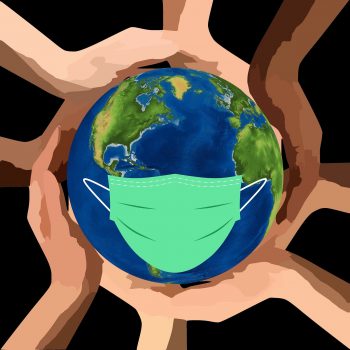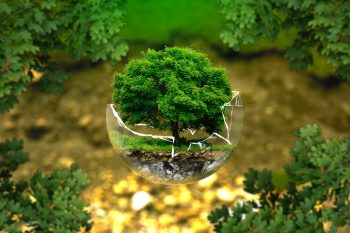How is Earth celebrating its day with coronavirus pandemic? Posted by Kasia on Apr 22, 2020 in Culture, Current News, Nature
Earth Day is an annual event, held on April 22nd, to demonstrate support and foster knowledge about environmental protection. It was first organised in 1970 in the USA. On April 22, 1970, 20 million Americans — 10% of the U.S. population at the time — took to the streets, college campuses and hundreds of cities to protest environmental ignorance and demand a new way forward for our planet. In Poland the first Earth Day (Dzień Ziemi) was held 30 years ago.
Though the coronavirus has caused life-threatening havoc and widespread economic damage, it has had other, unforeseen impacts:
- Less pollution (mniej zanieczyszczeń)
- Beaches are empty and turtles are loving it! (Plaże są puste i żółwie to uwielbiają) – Leatherback sea turtles, the largest living sea turtles, reaching up to 2,000 pounds, are making a comeback!
- Animals are roaming in national parks! (Zwierzęta wędrują po parkach narodowych). Normally avoiding people and shy, with people gone from the trails and campgrounds, animals are emerging in groups and enjoying their environment!
- “Victory Gardens” are returning! – The concept of Victory Gardens was created by the U.S. government in World War I, when food shortages in war-torn Europe put the burden on feeding millions of Americans. I personally grow small garden every year, but I definitely increased the volume of it this year and I’m starting everything from the seeds myself! My kids love gardening and it will definitely help save money this summer:) Plus seeing empty shelves at the grocery stores is making people think we may be short of produce in the near future…
In the short term, the change is seemingly miraculous. Satellite images from the European Space Agency show reduced levels of nitrogen dioxide (obiżone poziomy dwutlenku azotu), a byproduct of burning fossil fuels that causes respiratory problems, across major cities on the continent including Paris, Madrid and Rome as countries lock down and restrict travel. Cities across the U.S. have seen similar effects as Americans stay home in traffic-prone cities.
A bigger long-term question remains: will countries use this moment to fund green stimulus measures to foster economic growth? Across the globe, policymakers will need to answer similar questions. If policymakers make a concentrated and sustained effort to decarbonize our economy, today’s clear skies give us a preview of what may come, even if it takes decades to get there.
As people around the world work together to “flatten the curve” of COVID-19, the outsize roles we play in Earth’s natural system have become clear as never before! Billions of humans can now see how they are interconnected, working together to slow the spread of a lethal virus through their individual actions. Within this experience, if we are successful, lies the potential lesson we need not just to stop the worst projections for COVID-19, but to address other pressing societal challenges, including climate change.
There are challenges to be met, curves to be flattened, every action counts (Są wyzwania do spełnienia, krzywe do spłaszczenia, każda akcja się liczy)! We have to recognize the roles we have to play alone and together. Within our hands we will have the choice to learn from COVID-19 to live better in our own ecosystems, and within the greater natural system of Earth.

Build vocabulary, practice pronunciation, and more with Transparent Language Online. Available anytime, anywhere, on any device.






